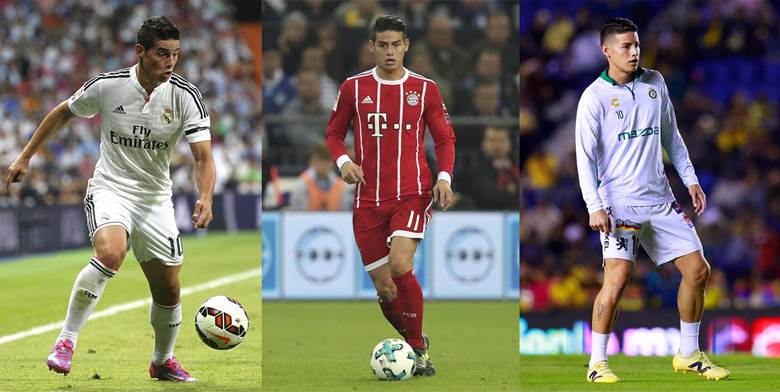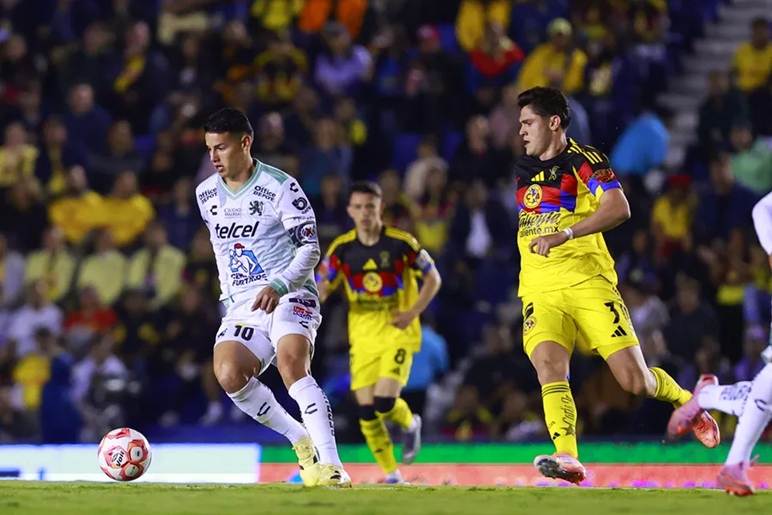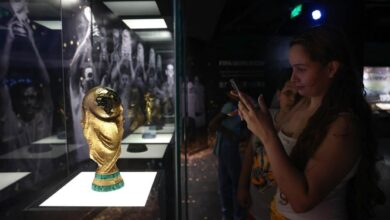James Rodríguez: Colombia’s Reluctant Nomad Still Searching for a Final Home

At 34, Colombian icon James Rodríguez has crossed three continents and worn twelve club shirts. His latest chapter in Mexico ended with a single dry sentence, “His contract ended. We thank him for being here.” The clock to 2026 keeps ticking.
An Ending in León, Another Fork in the Road
“Terminó su contrato. Le agradecemos que haya estado.” With that unceremonious farewell, León ended James Rodríguez’s brief Mexican adventure, 305 days that had promised revival and ended in silence. It was his twelfth club in an 18-year career that has been part odyssey, part loop.
Even the man who signed him, Jesús Martínez, the president of Grupo Pachuca, couldn’t let the moment fade without reverence. “He is a historic player, what Messi is to Argentina, what Cristiano is to Portugal,” Martínez said, invoking the mythology of 2014: James’s Puskás-winning volley against Uruguay, the Golden Boot, the boyish smile under Brazil’s tropical light.
That summer, he became a national treasure and Real Madrid’s new jewel, the left foot every child in Colombia tried to imitate on cracked asphalt. But a decade later, the man who once enchanted the Bernabéu is still wandering, three continents, twelve badges, no home that lasts.
From Envigado to Madrid: The Meteoric Rise
James’s story began far from the spotlight, in Envigado, the small club that first spotted a shy 14-year-old with impossible control and the instincts of a chess player. By 17, he was gone, bound for Argentina and Banfield, where manager Julio César Falcioni gambled on him in the first team.
In 2009, he became a champion in southern Buenos Aires, the teenager slipping passes that looked premeditated by something larger than chance. Porto came calling next, and between 2010 and 2013, he collected medals like postcards: every domestic trophy, a Europa League, 32 goals, 42 assists, and a reputation as Latin America’s following great creator.
Then came Monaco, moneyed and ambitious, a club of bright ideas and shorter patience. He shared a locker room with Radamel Falcao García, dazzled for a season, and then came the month that changed his life: June 2014, Brazil, the World Cup.
The volley against Uruguay, his tearful glance to the heavens, the Golden Boot, made him a symbol. On July 22, 2014, Real Madrid unveiled him to a roaring stadium. Under Carlo Ancelotti, he was what every No. 10 dreams of being: indispensable, elegant, decisive—twenty-eight goals, forty assists, and an aura of inevitability when he touched the ball.
Under Zinedine Zidane, the fairy tale lost its rhythm. The rotations deepened, and James became the face of Madrid’s surplus luxury, a genius too expensive to trust, too famous to forget. He still left with a treasury: two Champions Leagues, one LaLiga, two Club World Cups, two European Super Cups, and the bittersweet memory of belonging to a club that no longer needed him.

Munich Glory, Merseyside Drift, and the Long Wander
The Bayern Munich loan looked like a chance at redemption. Under Jupp Heynckes, then Niko Kovač, James thrived again: 43 games, 15 goals, 20 assists, and trophies stacked like proofs of life, two Bundesligas, a DFB-Pokal, and two German Super Cups.
But Munich was borrowed time. He returned to Madrid, then followed Ancelotti to Everton, hoping to reignite the spark in the Premier League. For a few months in 2020, it worked. The crisp autumn air at Goodison Park carried the smell of renaissance—six goals, nine assists, and a revived sense that his vision could still reshape games.
Then came the drift—Al-Rayyan in Qatar, four goals in two seasons, a paycheck wrapped in exile. Olympiacos offered Europe again, but little affection. São Paulo delivered a Copa do Brasil medal but just one goal. A six-game return to LaLiga with Rayo Vallecano in early 2024 brought no goals, no assists, only nostalgia.
By the time he reached León, the suitcase had more stamps than medals. The Mexican club offered a chance to anchor one last time, to smile again under stadium lights that loved his name. But when FIFA excluded León from the Club World Cup over a multi-ownership dispute, the magic fizzled. He left the way he had arrived, quietly, carrying a reputation heavier than his minutes.
La Tricolor, the Clock, and the Next Address
If club football has made James a traveler in his own story, the national team remains his compass. In the yellow of Colombia, he still looks unhurried, confident, capable of bending the rhythm of a match to his will. Under Argentine coach Néstor Lorenzo, he is again a leader, a bridge between generations.
But time doesn’t stop, even for talent. Lorenzo has been blunt: find a club, play regularly, and arrive at the 2026 World Cup ready. The following 18 months will decide whether James is remembered as a man who faded early or one who found a late renaissance.
The rumor mill turns. Orlando City is on the horizon, a move that would bring him closer to the North American World Cup and into a league where stars like Messi, Busquets, and Suárez have rediscovered joy. Others whisper of a return to Europe, Turkey, Portugal, maybe Italy. Wherever he lands, the formula is the same: minutes, rhythm, trust.
Even now, coaches call him an artist without a gallery. His left foot remains a signature worth the price of the ticket. His issue has never been talent; it has been belonging.
The Final Act: Faith, Memory, and the Weight of Genius
There’s a temptation to divide James’s career into two neat halves, the prodigy and the pilgrim, but that misses the current beneath it. His path has always been about reinvention. From Envigado’s clay pitches to Madrid’s marble floors, from Qatar’s quiet stands to Mexico’s humid nights, James has kept chasing a moment when the game feels easy again.
He doesn’t need to prove he was once great; he did that on the world’s biggest stage, when the ball fell from the sky in Brazil and he volleyed it into eternity. What he needs now is what every aging artist needs: a stage that still believes.
At 34, he talks less, smiles more, and seems aware that the next contract isn’t about money but meaning. Somewhere, whether in Orlando, Lisbon, or Bogotá, there might still be a manager who looks at him and sees not the wanderer but the maker of beauty he has always been.
For now, the suitcase waits by the door again. The next flight will be number thirteen, the following badge another beginning. The clock to 2026 keeps ticking, and the left foot that once made a nation dream still has stories left to tell.
Also Read: How Argentine Independiente Rivadavia Finally Touched the Sky Asfter 112-Year Wait




